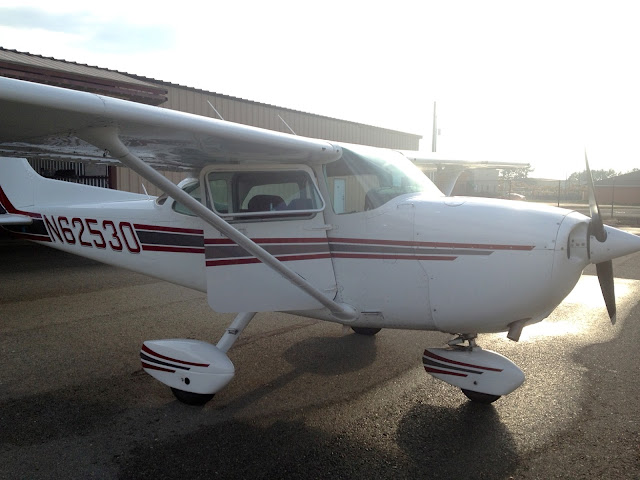- Training becomes more fun: You have the confidence in aircraft systems necessary to really know your airplane. It is extremely rewarding to pass the FAA Knowledge Test. You won't feel that nagging feeling of knowing you need to study for an exam. You won't be stressed out about the exam during training if it's already done! Best to just get it out of the way! The final check-ride and oral exam comes at the end, so no need to worry about that (for now).
- Do it while the weather is bad: Get the exam done while the weather outside is questionable and often poor. Once the weather improves in the spring and summer, finding a time to fly will become much easier! In addition, it can become more predictable in the spring/summer compared to the winter = less cancelled flights!
- The knowledge gained will SAVE you TIME and MONEY: After having studied for the FAA Written, you will have a solid base knowledge of many airplane systems, aerodynamics, navigation, maneuvers, etc. Your training will go faster (you'll already know how to handle certain situations). All of this equates to money saved. The better prepared you are for a flight, the smaller the learning curve is. Because of this, you'll save money and time, finishing up safely and effectively in minimum time.
All of this led to the question: "what is the best way I can prepare for the Knowledge Exam?" I am using a variety of study tools available. When deciding on study tools, my parents and I decided to go for diversity of materials. In the end we hope these will expedite training, give a good base knowledge, save money in the long run, and of course, do as well as possible on the Knowledge Test. (shoot for 100%!) I'd rather not be a C pilot...
Here is what I am using to study and why:
1. Jeppesen Private Pilot's Textbook: Jeppesen has a line of standardized textbooks ranging from Sport Pilot to Airline Transport Pilot. I decided to go with Jeppesen for my main textbook because their system has textbooks laid out in the same fashion for every level. There are questions at the end of each sections to test knowledge. In the future, when I need a book for the next certificate (lets say instrument) I will know what to expect diving into the book. So far, I've gone through the first two chapters (I'm shooting for 1 per day). There is a lot of information presented at once!
2. Sporty's Learn to Fly Course: I am someone who learns a lot visually. The graphics, advanced animations, in-cockpit footage, and much more contained in this modular course really have been great to watch and learn from. They have flashcard sections, formatted practice tests, and will even give you an endorsement to take the FAA Written after having passed two tests with a minimum of 80%. Reading from a textbook is great, but actually watching how people fly in live time is priceless. The course is pretty pricey, but well worth it in my opinion.
3. Gleim Private Pilot FAA Knowledge Test: this textbook is full of every released question that the FAA could give on the written exam. It is divided into units and sub-units. Each question is given, with the correct answer being given in a separate column (including an explanation for why). At the end, there is a practice test with randomly selected questions and answers. For me, this will be used mainly as a follow-up tool after having read the Jeppesen book and watching the Sporty's Online Course. In the end, a lot of choosing on materials comes down to what you are comfortable with and what type of learner you are. Do you like visual animations? Do textbooks work better for you? My opinion is that in an ideal situation you will try to learn using as many available methods as possible.
Hope my ideas might have given you something to think about when deciding on study materials! Best of luck to all of you,
Swayne Martin




































